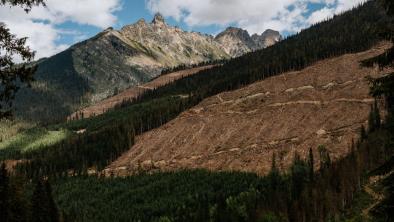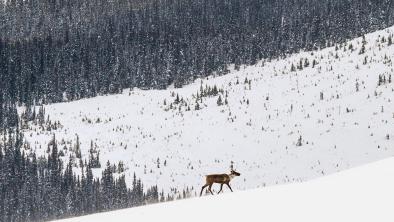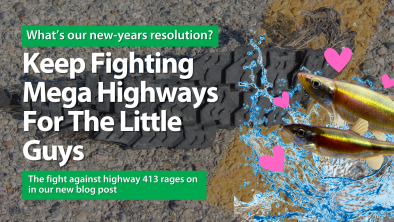Dry ski slopes will be least of B.C.'s troubles
Globe & Mail

Climate-impact specialists have long warned that British Columbia is facing reduced snowpacks in southern mountains because of global warming.
A glance at Cypress Mountain, where the Vancouver Organizing Committee is now forced to truck in snow to keep Olympic venues viable, will tell you what the future looks like.
But the loss of some skiing terrain is going to be the least of B.C.'s future problems, warn 29 non-profit organizations that are pushing the government to modernize its antiquated water laws.
With less snow in the mountains, and warmer springs, climate projections show we can expect to see earlier runoff and longer periods of reduced summer stream flows in B.C.
That situation has already become evident on Vancouver Island's Cowichan River, where water levels have become so low that salmon have had to be trucked upstream to the spawning beds. And on the Fraser River, water temperatures in July and August now routinely approach lethal levels for spawning sockeye.
It is evident that with reduced snowpacks and lower summer flows, the management of water is becoming increasingly crucial to the survival of salmon.
That was one of the main concerns that drove the coalition of non-profit organizations to meet this winter to hammer out a common position on the B.C. Water Act, which is currently under legislative review.
"B.C.'s current water-management system ranks amongst the worst in North America," said Randy Christensen, a lawyer with Ecojustice, one of the groups that is calling for change.
"It's hardly news that salmon need water, or that water is becoming scarcer due to human demand and climate change," said Craig Orr, an ecologist with Watershed Watch, who wants to see B.C.'s water laws reflect the needs of salmon.
Dr. Orr said the collapse of Fraser River sockeye stocks (now the subject of a federal judicial inquiry) is a reminder of how precarious things are.
"Without strong rules on water use and the health of water systems, even more salmon will be in trouble in the near future," he said.
The non-profit organizations demanding government action include the Wilderness Committee, World Wildlife Fund, Sierra Club BC, David Suzuki Foundation and Fraser River Coalition.
Among the changes the groups want to see are laws that protect in-stream flows. In other words, they want B.C.'s water laws to recognize that fish and wildlife, as well as people, depend on water.
Currently, it's possible in B.C. to license off the entire flow of a stream, making it legal to pump a watercourse dry in order, for example, to water hay fields.
Ski resorts have been pressing the government in various areas of the province for water licences that would reduce the flow of small tributaries and damage the habitat of fish downstream. Should developers really be allowed to fill up hot tubs at the expense of trout?
Should power-generating dams be allowed on streams where changes to water flows could affect fish production?
"Addressing the unprecedented challenges brought about by changing climate necessitates a fundamental re-thinking of how we store and deliver water, generate power [and] protect ecosystems," say the groups in a statement demanding dramatic reform of the B.C. Water Act.
They ask for new laws that will "guard against overuse of water, address threats to water quality, prevent changes to riparian features, and enable adaptation to climate change."
That makes sense, and the government should act promptly.
After all, it might be too late to save skiing on Cypress, but there is still time to save our salmon if we do a better job managing our water.


